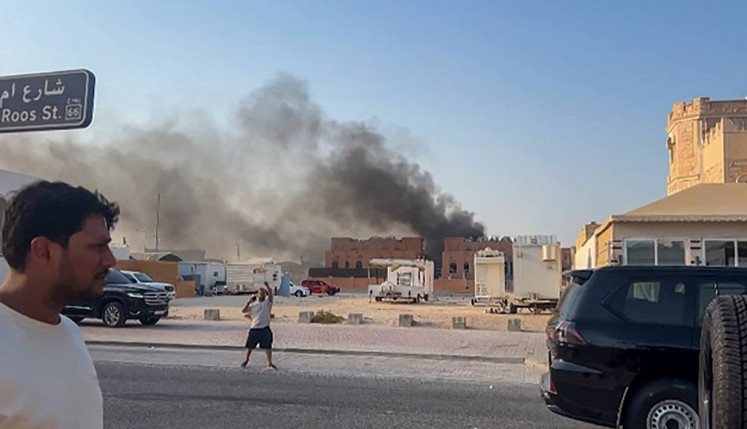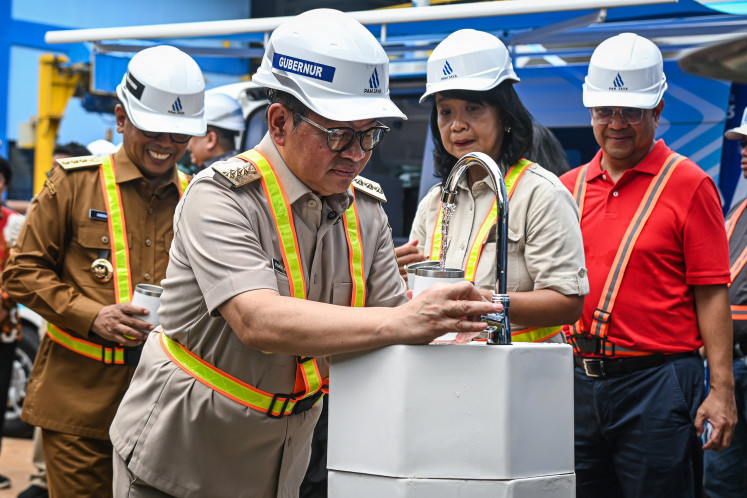Popular Reads
Top Results
Can't find what you're looking for?
View all search resultsPopular Reads
Top Results
Can't find what you're looking for?
View all search resultsJudges continue blocking information in JIS trial
The panel of judges in the trial of two teachers from the Jakarta Intercultural School (JIS) implicated in a sexual abuse case has continued blocking information access by preventing any parties from providing information to the public
Change text size
Gift Premium Articles
to Anyone
T
he panel of judges in the trial of two teachers from the Jakarta Intercultural School (JIS) implicated in a sexual abuse case has continued blocking information access by preventing any parties from providing information to the public.
Sandhy Handika, state prosecutor of the case, said on Tuesday that the panel of judges, chaired
by Nuraslam Bustaman, had reinstated an order that prosecutors, lawyers, defendants and anyone else who participated in the closed-door trial must not to talk to the media.
'At the judges' order, everyone inside the courtroom has agreed not to talk to the press about
what has happened inside,' Sandy told The Jakarta Post after a hearing at the South Jakarta District Court.
JIS teacher Neil Bantleman and teaching assistant Ferdinant Tjiong could face up to 15 years behind bars as prosecutors have charged them with allegedly sexually abusing three kindergarten pupils at the prestigious school.
Limited information on the trial is available as the Criminal Law Procedures Code stipulates that any trial involving an underage person or sexual abuse must be held behind closed doors.
Furthermore, in a bid to add to the sense of secrecy surrounding the case, any parties involved are prohibited from making statements to the media, to maintain the trial's 'privacy'.
A number of advocates for open public information have questioned the judges' decision and pointed out that there were no such orders in a related sexual abuse case that sentenced five janitors to between seven and eight years' imprisonment each.
In several countries, courts can prevent lawyers and prosecutors from revealing a case to the press, known as a gag order.
However, such a policy has no legal basis in the Indonesian judicial system.
The Judicial Commission's (KY) head of judge monitoring and investigation, Eman Suparman, said judges had no authority to prevent information flow and communication between lawyers or prosecutors and the press, saying it was 'none of the judges' business'.
'[The policy] is way too much. Prosecutors and lawyers have the right to talk to the press and public,' Eman said.
Eman added that the judges should be aware that every lawyer and prosecutor was bound under an ethical code, which made them subject to sanctions within the realm of the profession's ethical conduct. He went on that judges were not in a position to impose such conditions.
'Why should information in the court be kept secret? As long as it does not contain any secret information, it should be revealed to the public,' he continued.
Separately, Institute for Policy Research and Advocacy (ELSAM) executive director Indriaswati Saptaningrum said that closed-door trials must be held for sexual abuse cases to protect victims' identities.
'However, judges should not prevent public access to the general information of the trial,' Indriaswati said.
The latest hearing on Tuesday saw medical experts taking the witness stand, lawyer Sandy told the Post.










